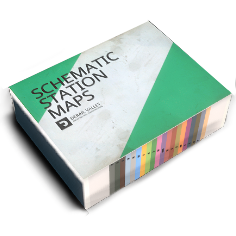Mechanical Powertrain Damage/en: Difference between revisions
Updating to match new version of source page |
Updating to match new version of source page |
||
| Line 1: | Line 1: | ||
<languages /> | <languages /> | ||
Mechanical powertrain refers to mechanical systems that set a vehicle in motion. This includes internal combustion engines, transmission systems, steam boilers and so on. Mechanical powertrain damage may occur as a result of collisions, but also due to improper operation of a vehicle. Lack of lubrication, or most commonly, transmission oil overheating may cause severe damage, and even catastrophic failure, immobilizing the vehicle and potentially causing body damage too. | Mechanical powertrain refers to mechanical systems that set a vehicle in motion. This includes internal combustion engines, transmission systems, steam boilers and so on. Mechanical powertrain damage may occur as a result of collisions, but also due to improper operation of a vehicle. Lack of lubrication, or most commonly, transmission oil overheating may cause severe damage, and even catastrophic failure, immobilizing the vehicle and potentially causing body damage too. | ||
| Line 8: | Line 7: | ||
{{See also|Servicing|Body Damage|Electrical Powertrain Damage|Wheels & Brakes Damage|Hydraulic Transmission|Cars & Cargo Damage|Mechanical Transmission|Steam}} | {{See also|Servicing|Body Damage|Electrical Powertrain Damage|Wheels & Brakes Damage|Hydraulic Transmission|Cars & Cargo Damage|Mechanical Transmission|Steam}} | ||
[[Category:Servicing]] | [[Category:Servicing|5]] | ||
Revision as of 16:05, 28 February 2025
Mechanical powertrain refers to mechanical systems that set a vehicle in motion. This includes internal combustion engines, transmission systems, steam boilers and so on. Mechanical powertrain damage may occur as a result of collisions, but also due to improper operation of a vehicle. Lack of lubrication, or most commonly, transmission oil overheating may cause severe damage, and even catastrophic failure, immobilizing the vehicle and potentially causing body damage too.
Every time a diesel engine is started, its health is slightly reduced. Just by running, the engine is receiving slight damage too. This is normal and expected, due to wear and tear of the moving parts. It is generally less economical to frequently turn the engine on and off, than to keep it idling for short periods of time.
Diesel engines also get wear and tear based on the RPM they’re running at. Transmission components get worn based on how much stress is put on them. While the damage cannot be avoided altogether, by operating the machines gently it can be reduced to a minimum.
See also: Servicing, Body Damage, Electrical Powertrain Damage, Wheels & Brakes Damage, Hydraulic Transmission, Cars & Cargo Damage, Mechanical Transmission, Steam
